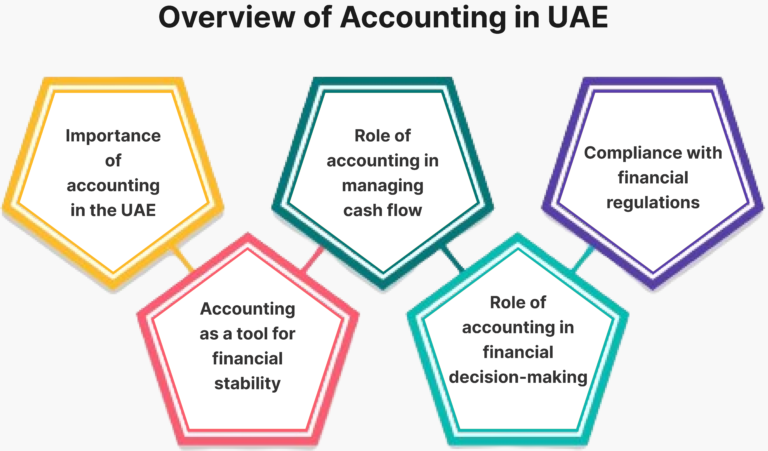Skip to content
Skip to footer
The role of accounting in business is essential for achieving financial stability in the UAE. Accounting involves recording, classifying, and analyzing financial transactions to help businesses make informed decisions. Accounting is especially important in the UAE as it helps businesses to maintain their financial stability, allowing them to reach their goals and objectives. Through accounting, businesses are able to monitor their finances and make sound decisions that will ensure their financial health. Therefore, accounting plays a vital role in the success of businesses in the UAE.
In the UAE, audit of accounts is a mandatory requirement for most companies and other entities. Companies that are required to have an audit of their accounts include companies limited by shares, public joint stock companies, limited liability companies, partnerships, sole proprietorships, and branches of foreign companies. The audit of accounts is conducted in accordance with the International Standards on Auditing (ISAs) issued by the International Auditing and Assurance Standards Board (IAASB). These standards ensure that the financial statements of companies are reliable and provide a true and fair view of the company’s financial position.
In this thorough analysis, we explore the importance of accounting procedures in the UAE business landscape, emphasizing their diverse roles. Accounting principles are essential to the success and compliance of firms operating in the UAE, acting as a cornerstone for financial stability and as a strategic tool for controlling cash flow.

Accounting plays a key role in business operations in the UAE; it helps businesses to monitor their financial transactions and maintain accurate financial records. Accounting is important to ensure compliance with the financial regulations set by the government. It also helps businesses to understand their financial performance, identify potential risks, plan for the future, and make informed decisions. Accountants are responsible for preparing financial statements, reports, and other documents to provide an accurate representation of the financial position of a business.
Financial stability is a crucial aspect of any business, and accounting plays a vital role in achieving it. Accounting is the process of recording, classifying, and summarizing financial transactions to provide accurate and reliable information for decision-making. The role of accounting in business is to provide information about the financial performance of the business. Key accounting tasks for financial stability include bookkeeping, tax preparation, financial reporting, auditing, and payroll management. Through these activities, businesses can track their revenue, expenses, and assets, and identify areas where they can reduce costs and increase profits.
When choosing an accounting firm, businesses should consider factors such as experience, expertise, reputation, and cost. Key factors to look for in an accounting firm include a track record of success, knowledge of the industry, and a commitment to customer service. Questions to ask when evaluating potential accounting firms include their experience working with businesses similar to yours, their availability and responsiveness, and their approach to technology and security.
Cash flow management is a key component of financial stability. It involves monitoring cash inflows and outflows to ensure that a business has sufficient funds to meet its financial obligations. Accounting plays an important role in cash flow management by providing accurate data on the cash position of a business. This information allows the company to determine when to pay their bills, when to collect payments from customers, and when to invest in new projects or services. Additionally, cash flow management can help businesses plan and manage their cash reserves, anticipate cash needs, and identify potential risks.
Financial decision-making is an important part of achieving financial stability. Accounting is a critical tool that provides businesses with the information necessary to make informed financial decisions. Accounting information can be used to evaluate the potential risks and rewards of investments, as well as to determine the most effective strategies for achieving financial objectives. It can also be used to decide whether to acquire new equipment or expand operations. Additionally, accounting data allows businesses to analyze the effects of proposed investments on their financial performance. For example, businesses can use financial ratios to compare the costs of different investments, or they can evaluate the potential return on investment of a particular project.
Accounting ensures to minimize the risk of penalties and legal issues. It involves maintaining accurate records and preparing financial statements in accordance with applicable accounting standards and regulatory frameworks. Through regular audits and reviews, accounting helps verify compliance and identify any areas of non-compliance for prompt remediation. Compliance with financial regulations supported by accounting builds trust and credibility with regulatory authorities, investors, and stakeholders.
Accounting plays a vital role in achieving financial stability for businesses in the UAE. Outsourcing accounting services can provide a range of benefits, including cost savings, access to expertise and technology, and improved efficiency. Businesses should carefully evaluate potential accounting firms to ensure they choose the right partner for achieving financial stability. To find out more about the other services offered by Maxims Auditors in UAE, please get in touch with us.